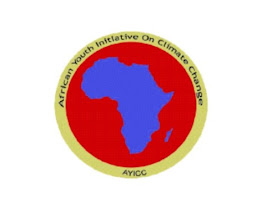WOMEN AND NATURAL RESOURCES: UNLOCKING THE PEACE BUILDING POTENTIAL
On 26th March 2014, two of our
members represented AYICC Kenya at the launch event for a report entitled "Women and Natural Resources: Unlocking
the Peace Building Potential" that was held at the UN grounds in
Gigiri.
The
report is the product of two-year collaboration between UNEP, UN Women, PBSO
and UNDP. It aims at improving the understanding of the complex relationship
between women and natural resources in conflict-affected settings and makes the
case for pursuing gender equality, women empowerment and sustainable natural
resource management together in support of peace building. The report drew on
field research from over 20 countries and some 200 academic sources and
institutions.
Some
of the case studies highlighted in the report include;
Under Overview
and analysis of key issues, the case
studies revolved around:
Legality versus reality: implementing women’s land rights in Uganda; Safeguarding gender equality gains for
ex-combatant in post-conflict Nepal; Women
in agriculture in post–conflict Aceh, Indonesia; Gender dynamics in water management in the west Bank; Women’s roles in the peace process in
Bougainville, Papua New Guinea; Women’s
participation in artisanal mining sector in post conflict Sierra Leone; Women’s participation in decision
making on forest management in Liberia.
Under Entry
points and opportunities for peace building, the case studies highlighted are
as follows: Supporting
sustainable livelihoods for women through natural resource management in
Burundi; Engaging women in natural
resource management and conflict resolution processes in South Kordofan, Sudan; Protecting women from exposure to
sexual violence while gathering natural resources in Darfur; The perils of the charcoal trade in
North Kivu, eastern Democratic Republic of the Congo; Improving women’s health and reducing deforestation in
Afghanistan.
SUMMARY OF
THE REPORT
Women’s
diverse experiences in times of conflict have powerful implications for peace building.
Their capacity to recover from conflict and contribute to peace is influenced
by their role in the conflict, whether directly engaged in armed groups, displaced
or forced to take on additional responsibilities to sustain their livelihoods
and care for their dependants.
Inspite
of efforts by the international community to recognize and better address these
multiple roles through agreements such as UN security council Resolution 1325
on Women, Peace and Security, the dominant perception of women as passive
victims in conflict settings continues to constraint their ability to formally
engage in political, economic and social recovery and thereby contribute to better
peace building.
One
of the unexplored entry points for strengthening women’s contributions to peace
building relates to the ways in which they use, manage, and make decisions on
gender norms in conflict affected settings, women’s roles in natural resource
management provides significant opportunities to enhance their participation in
decision making at all levels and to enable them to engage more productively in
economic revitalization activities.
As
the primary providers of water, food and energy at the household and community levels,
women in rural settings are often highly dependent on natural resources for
their livelihoods and are therefore particularly susceptible to changes in the
availability and quality of these resources during and after conflict. In particular,
lack of access to land - which underpins rights to all other natural resources
and is a key asset for securing productive inputs - can force them to
increasingly vulnerable situations and expose them to higher levels of physical
and livelihood risk, with trickle down impacts on community welfare. The
structural discrimination that women face regarding resource rights and access
also limits their political participation and economic productivity.
At
the same time, conflict often leads to both women and men to adopt coping strategies
that challenge traditional gender norms. To meet the needs of their households
by male family members, women may assume new natural resource management roles,
either by taking up alternative income generating activities or by moving into
traditionally male sectors. In the aftermath of conflict, capitalizing on these
shifting roles can contribute to breaking down barriers to women’s empowerment
and enhancing women’s productivity in sectors that are often critical to
economic revitalization.
Failure
to recognize the challenges and opportunities awarded to women in conflict
affected settings by their various roles in natural resource management also
risks perpetuating inequalities and deepening grievances linked to natural
resource rights access and control which have proven to be powerful catalysts
for violence. Addressing issues of inequality related to resource access and ownership,
participation in decision making and benefit-sharing early on in the peace
building process is therefore a critical condition for lasting peace and
development.
To
strengthen peace building outcomes by enhancing women’s engagement and
empowerment in conflict-affected contexts through sustainable natural resource
management, this report recommends that national governments and the
international community take the following action:
- Promote women’s participation in formal and informal decision making structures and governance processes related to natural resource management in peace building.
- Adopt proactive measures to protect women from resource-related physical violence and other security risks early in the peace building period
- Remove barriers and create enabling conditions to build women’s capacity for productive and sustainable use of natural resources
- Within the United Nations, increase inter-agency cooperation to pursue women‘s empowerment and sustainable natural resource management together in support of more effective peace building.
Edited by Victoria Chengo

Comments
Post a Comment